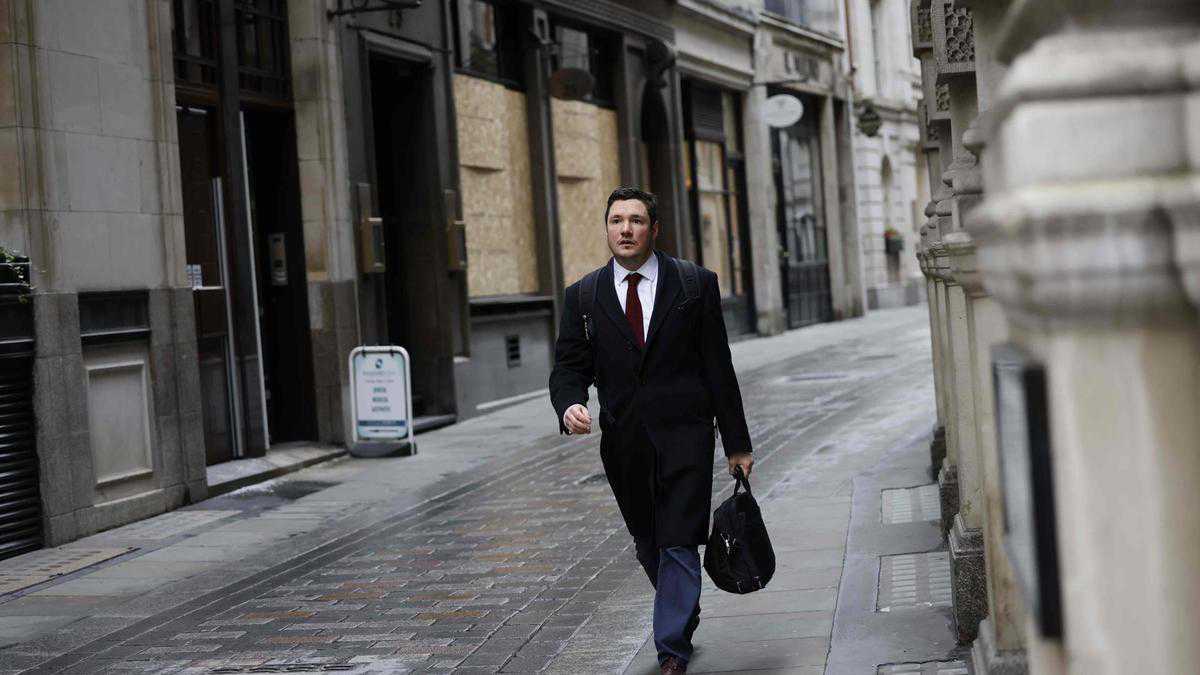City of London plans 'back to do the job' week in April to motivate staff to return to offices

Image: Collected
The City of London is planning for a ‘back to work’ week in April to regenerate the financial district following the Square Mile was almost closed down during the Covid-19 pandemic.
The financial hub will urge office personnel to come back for a ‘reopening’ week in the spring to improve the bars, restaurants and other venues over the financial district that count on employees being in offices, according to William Russell, god, the father mayor of London.
“There is a major plan. We can bring together the firms, the hospitality, the culture and get a whole load of folks returning,” Mr Russell told the Financial Times.
Companies positioned in the financial hub initial directed their staff to work from home when the UK's primary lockdown began in March.
An initial plan to get staff back to any office in late September, carrying out a summer of lower Covid instances, was abandoned after some new government curbs were unveiled over the course of the month to regulate an escalation in cases.
Therefore, office buildings have remained mostly empty as employers follow government advice to home based where possible. It has managed to get hard for the restaurants, cafes and different businesses that serve the Square Mile to survive.
Now London is usually on track to be placed on the toughest tier of coronavirus restrictions this week after brand-new data revealed the UK capital gets the highest rate of conditions in England.
While Mr Russell will not expect a flood of office staff to come back to the Square Mile prior to the spring, by April various anticipation the rollout of the vaccine will have had a significant effect on reducing the quantity of cases.
“January and February might be tough. We need to survive those month or two and hopefully keep coming back with a bang in springtime. I want everyone to get in on this reopening,” he said.
The former Merrill Lynch investment banker acknowledged that some employees could be more nervous than others about time for work where the risk of catching the virus is bigger. But he's confident staff will gain despite a potential shift in the way the professional world works.
Employers expect working at home to average two times weekly, according to a survey this month by Barclays.
The “WFH revolution” results in a “10 % to 20 % structural reduction” in office demand, with the UK the most vulnerable, in line with the global report.
To lure the more than 500,000 people that were going into any office in February to return, Mr Russell has asked Transport for London to reopen the Waterloo and City line before April's ‘back to do the job’ week, that was closed in March.
“In February we'd over 500,000 persons getting into the Square Mile each day and that will take a long time to make contact with,” he said.
In October, a study by UK accountancy consultancy Theta Global Advisors found over fifty percent of City of London personnel would not go back to the office.
Forty-five per cent of these polled said the pandemic had made them realise just what a poor work-life balance that they had pre-lockdown, something they don’t intend to go back to in future.
The same month, the Square Mile pledged to reinvent itself and emerge more robust from the Covid-19 pandemic, recharging the administrative centre by 2025 with new start-up hubs, affordable work spaces, digital funds and entrepreneur-friendly stock market reforms.
Mr Russell, who heads the town of London Corporation, which oversees operation in the Square Mile, decided to stay in his unpaid position for another term found in November to supply continuity during the pandemic, becoming just the second mayor to do so.
He is optimistic about the post-Covid potential of the town, saying the financial hub can grow, particularly in areas such as for example green finance and FinTech.
He likewise believes the City can withstand the consequences of Brexit, despite nerves from financial services businesses that a ‘no-deal’ Brexit may cause them to reduce clients and influence.
According to Ernst & Little, 7,500 of the more than 500,000 persons who work in THE TOWN have already relocated, with boat loan companies transferring a lot more than £1.2 trillion ($1.59tn) found in assets to the EU since Britain's referendum about EU membership in 2016.
THE LENDER of England said on Friday that UK banks remained "resilient" to the risks of Brexit and the coronavirus. Nonetheless it warned that some EU-based firms might face challenges providing cross-border providers, and vice versa.
From January 1, Britain's financial sector will lose a European "passport" that allows it to sell products and financial offerings across the EU.
The City can be concerned about talk of an "equivalence" regime of compatible rules that in theory would keep carefully the financial taps running but in practice could possibly be easily revoked.
The EU has recently given the go-ahead for derivatives clearing residences, which underwrite a lot more than trillion dollars in transactions each day, but it has not confirmed plans for trading.
"If the UK and EU have a more acrimonious relationship, it could take longer to obtain these equivalence decisions," explained Sarah Hall, from the UK in a Changing Europe think-tank.
Source: https://www.thenationalnews.com
Tags :
Previous Story
- https://www.thedailystar.net/business/news/negotiations-fta-asean-underway-2011089
- Bangladesh banks on preferential trade terms to improve...
- 'Bangladesh, India can collaborate to compete globally found...
- ‘Completion of Padma Bridge to boost Bangladeshi economy’
- Bangladesh pins hopes in various trade deals just...
- Container logistics dog seaborne ferrous scrap trade
- Oracle to go its headquarters to Texas
- Move away from growth delusion